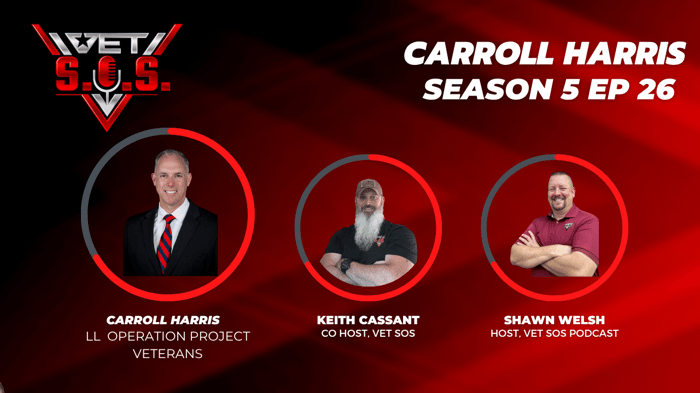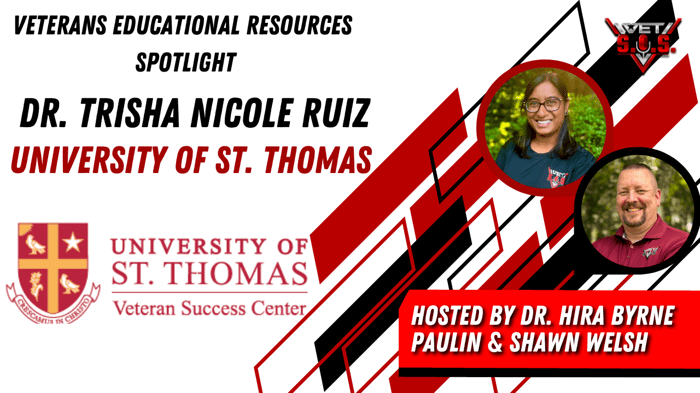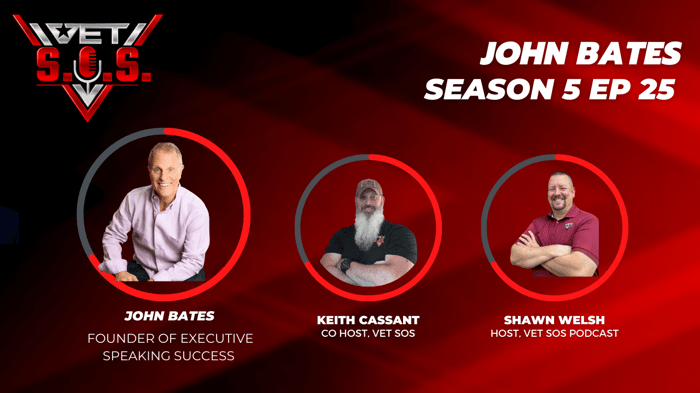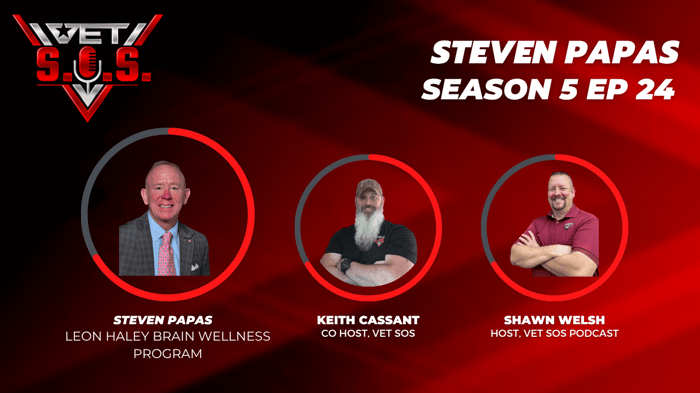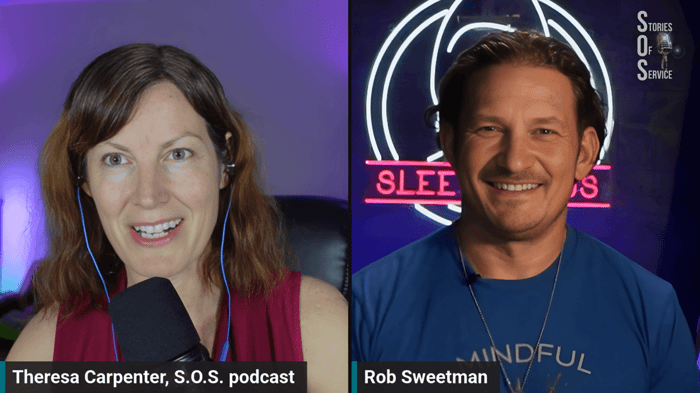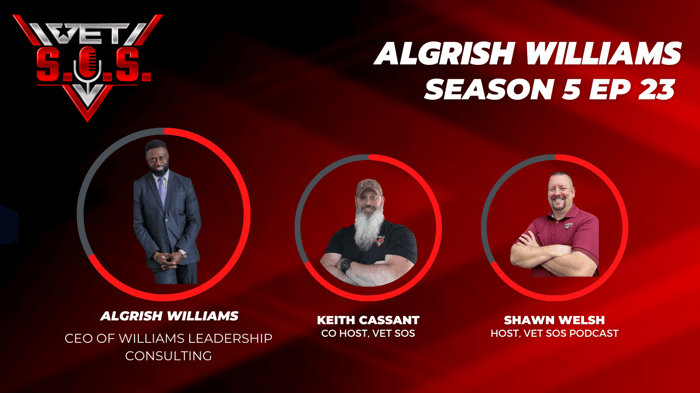Veteran Scams: How Operation Protect Veterans Is Taking the Fight to Fraudsters
Every year, thousands of veterans are targeted by fraudsters looking to exploit their service, sacrifice, and sense of community. Whether through fake charities, phony benefits assistance, or predatory lending, these veteran scams are on the rise—and they're costing veterans their money, security, and peace of mind.
In this episode of the VET S.O.S. podcast, Inspector Carroll Harris—a Marine Corps veteran and federal agent—joins us to talk about his mission to stop veteran scams through a national initiative called Operation Protect Veterans. Backed by the U.S. Postal Inspection Service (USPIS), this campaign is working to arm veterans with the information and tools they need to recognize and resist fraud.
This post dives into the biggest veteran scams, why veterans are at risk, and how you can protect yourself and those you care about from falling victim.
A Veteran’s Journey from Service to Scam Prevention
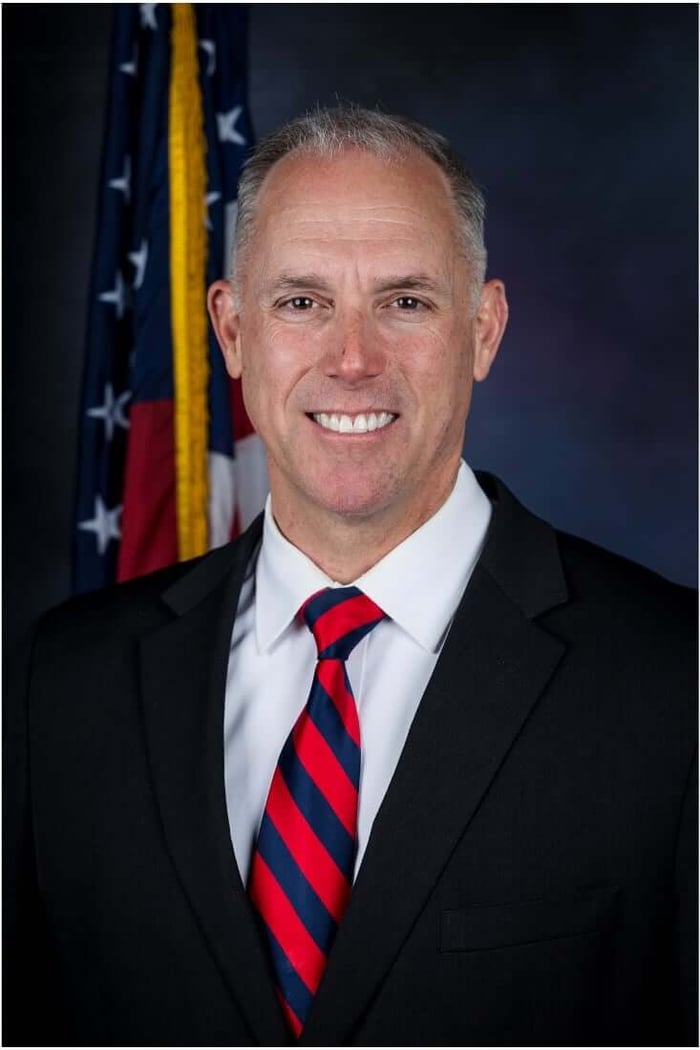 Carroll Harris
Carroll HarrisInspector Carroll Harris brings more than 33 years of government experience to the fight against veteran scams. After serving in the Marine Corps—including both active duty and reserve roles—Carroll transitioned into federal service. He worked as a Veterans Service Representative helping others navigate VA benefits, and eventually became a federal agent with the DEA and later the Postal Inspection Service.
His story is one of leadership, lifelong service, and personal connection to the challenges veterans face. That connection drives his passion for stopping scams that specifically target former service members—many of whom trust easily when dealing with fellow veterans or organizations that appear to support the military community.
What Are Veteran Scams?
Veteran scams are fraudulent schemes that specifically target individuals who have served in the military. These scams are designed to exploit veterans' trust, benefits, or sense of duty. According to research from the Federal Trade Commission (FTC) and AARP, veterans are up to 40% more likely to fall for these scams than the general population.
Why? Because scammers use affinity-based manipulation, pretending to be fellow veterans or military-connected individuals. They know that shared experience can break down natural skepticism.
Top Veteran Scams to Watch Out For
1. Fake Veteran Charities
Fraudsters pose as military nonprofits, soliciting donations they claim will support injured veterans, families of the fallen, or homeless vets. In reality, the money lines their pockets. Always verify a charity on Charity Navigator or through the VA’s approved organization list.
2. VA Loan Scams
Predatory lenders target veterans eligible for VA loans by offering "assistance" or "streamlined" refinancing. These often include hidden fees, outrageous interest rates, or charges for services that should be free.
3. Phony Benefits Advisors
Some scammers offer to "help" veterans access their benefits—for a fee. These services are typically free through the VA or veteran service organizations (VSOs). If someone’s charging you hundreds of dollars to submit a form, it's likely a scam.
4. High-Pressure Offers
A common tactic in veteran scams is to create a false sense of urgency. Victims are told they must act immediately or risk losing an opportunity. Carroll teaches a simple defense:
Pause. Breathe. Connect.
Slow down, take a moment, and check in with a trusted battle buddy or veteran resource before acting.
Why Are Veterans Susceptible to Scams?
You might think military service instills enough skepticism to fend off scams. But studies show otherwise.
Veterans—especially those transitioning out of service—are vulnerable due to:
Trust in shared military identity
Limited experience with financial tools
Isolation or mental health challenges
Urgency to secure housing, employment, or benefits
Younger veterans, in particular, are falling victim at higher rates. According to Carroll, "It’s not just the elderly anymore. Many Gen Z and millennial veterans are getting hit hard by these scams because they don’t always know what’s real and what’s predatory."
How Operation Protect Veterans Is Making a Difference
Carroll Harris is one of the lead advocates for Operation Protect Veterans, a public education initiative led by the U.S. Postal Inspection Service. The campaign focuses on informing veterans about scam tactics and encouraging them to take preventive action.
Key components of the campaign include:
A dedicated portal at uspis.gov/veterans
Scam alert flyers in both English and Spanish
Video explainers on the latest fraud tactics
A hotline for reporting mail fraud: 877-876-2455
The campaign has been active for over seven years and is spreading awareness across thousands of post offices and military-affiliated communities nationwide.
Resources to Avoid Veteran Scams
Inspector Harris emphasizes that education is the best defense. Veterans can protect themselves by turning to trusted resources, including:
He also urges listeners to become protectors themselves. "Once you're educated, you can help the veteran to your left and right. That’s how we turn the tide on this."
If You’ve Been Targeted or Scammed
Carroll is quick to remind veterans that being scammed is not a personal failure. These criminals are professionals. If you've been targeted:
Report the scam to the USPIS, FTC, or AARP
Contact your bank or financial institution immediately
Connect with a Veteran Service Officer (VSO) for support
It’s also essential to speak up. Silence allows these scams to continue. By sharing your experience, you help protect others in the community.
The Power of Community and Vulnerability
One of the most powerful takeaways from Carroll's appearance is the importance of connection. He talks openly about needing help during his own transition—and how veterans often suffer in silence due to pride or a lack of direction.
He encourages every veteran to:
Ask for help when needed
Check in on fellow vets regularly
Be a “battle buddy” to someone else
As Carroll puts it, “Veterans are built to serve. If we can’t protect each other, who will?”
Final Thoughts from VET S.O.S.
Veteran scams are evolving, but so is the fight against them. Through initiatives like Operation Protect Veterans, passionate leaders like Inspector Carroll Harris, and platforms like the VET S.O.S. podcast, veterans have powerful allies in their corner.
Remember:
Get informed
Slow down before acting
Connect with trusted resources
And always Pause. Breathe. Connect.
If you’re a veteran or love someone who is, please share this post. Let’s work together to keep our community safe from fraud.
